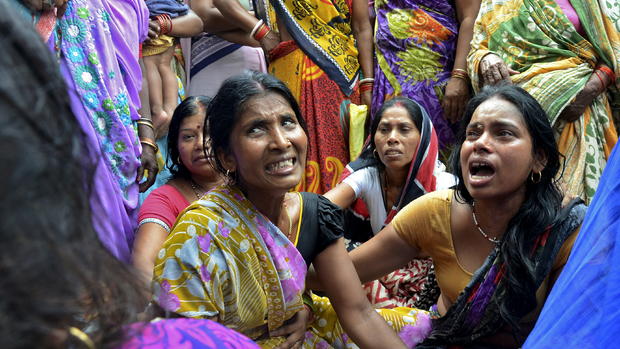Nepal quake sparks exodus of fear, frustration
KATHMANDU, Nepal -- The death toll from the devastating earthquake that hit Nepal on Saturday has surpassed 5,000.
CBS News correspondent Seth Doane reports that in the capital of Kathmandu, frustration is mounting fast over the response to the disaster, and people are trying to get out of the badly damaged city.
Thousands are fleeing to villages or family homes outside the valley in which Kathmandu sits, some to check on their loved ones, others hoping life outside the ancient capital will be better.
Doane says there are also incredible stories of survival.
After drilling and prying at debris for five hours, rescuers were able to pull 28-year-old Rishi Khanal out of the rubble alive.
He'd been trapped, near dead bodies, for about 80 hours.
"My nails went all white and my lips cracked," said Khanal. "I was certain I was going to die."
But stories like his are few and far between at this stage.
On the streets of Kathmandu, Doane found mounting frustration -- people protesting what they consider government inaction -- and police in riot gear for the first time since the quake.
Hundreds of people lined up in dismal weather to try to get out of the capital. The government is offering free bus tickets to remote villages, but the buses are overflowing and tickets are scarce.
Smita Rai, 16, said she felt lucky to get one.
"I am leaving this, Kathmandu, because we cannot stay now here because of various diseases," she told Doane. She wants to go back to her family home.
Nearby, at a camp for those displaced by the disaster, Doane found more people on the move. They came to avoid the aftershocks, but now they're leaving, also out of fear of spreading illness.
Doctor Roshan Kumar was tending to the ill. He said he's hearing more and more of those fears, and he says they're not entirely misplaced, "because some communicable disease are due to the overcrowding."
He told CBS News the first disaster was the earthquake, but he worries a second one could be coming in the form of a public health crisis.
